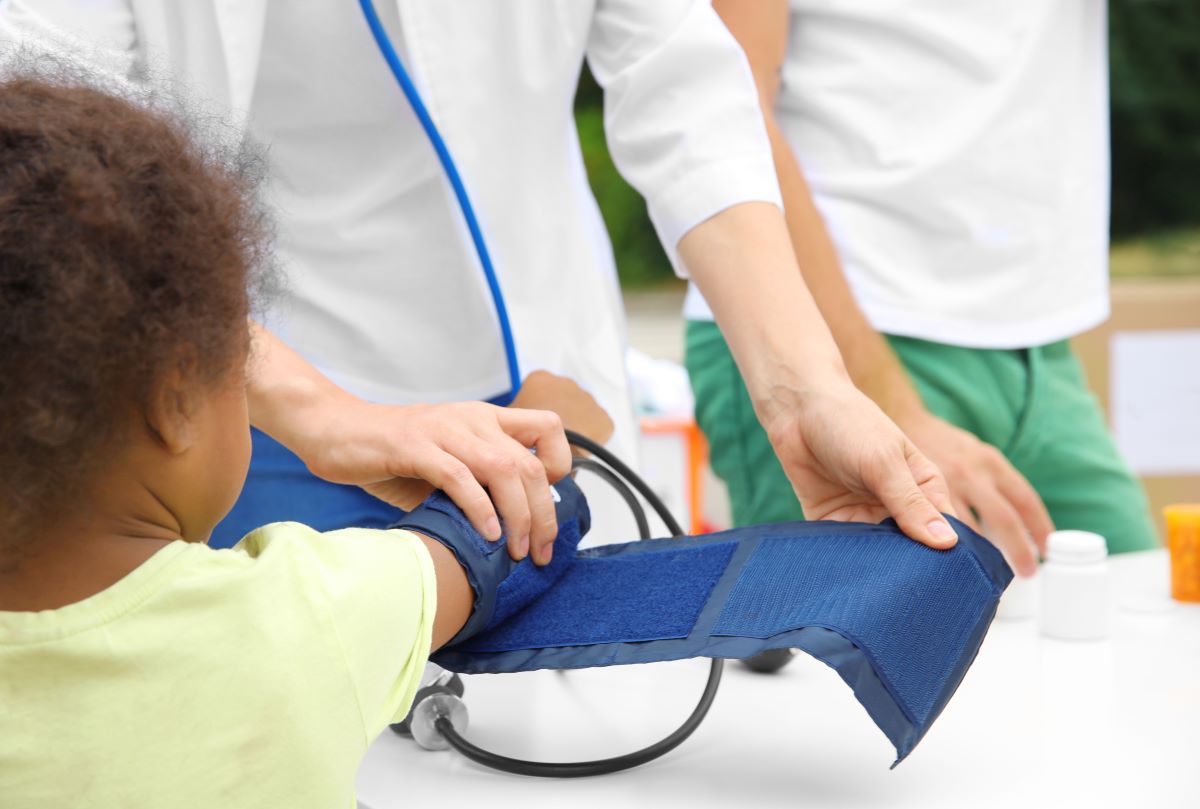The Clinica Sierra Vista Street Medicine Team Helps Homeless People in California
Imagine spending your senior years homeless and alone, living in a tent. Imagine that tent is in a rural town with little access to services. That is what Audrey, an older woman living in Redding, California, has gone through.
Audrey is hypoglycemic and hasn’t had a glucose test in years. Beyond hypoglycemia, she also struggles with incontinence, a prevalent medical condition among older women.
Unlike other women her age, she doesn’t have help from family members and medical professionals. She doesn’t have the same resources to manage the obstacles of growing older.
Because of this, she often wakes up in the morning soaked in urine, and she doesn’t have the money, help, or resources to clean up her bedding or clothes. She also doesn’t have the resources or help to prevent these accidents from happening.
Accessing healthcare is already difficult for homeless people, as they often do not have insurance. Clinics often require some form of identification, which homeless people often do not have as well. In the worst circumstances, there are no healthcare services nearby, and they have no means to get to a healthcare facility.
Access to basic healthcare is a massive challenge for homeless people, and because of that, street medicine initiatives are so vital to the homeless community.
In many cases, without street medicine programs, such as the HOPE Program with Shasta Community Health Center, many homeless people will go without any medical care and are only able to access the ER via ambulance.
Street Medicine approaches this issue by bringing medical attention to homeless people where they are. This means bringing medical professionals to the streets, to the abandoned buildings, to squatters, to street homeless, mobile homeless, and other really unconventional and sometimes difficult-to-reach places like under bridges and in the woods.
In many ways, it’s hard to imagine accessible medical care for all in our society. For me personally, I’d rarely accessed medical care due to a lack of insurance for most of my 20s. It wasn’t until I was homeless that I was able to access medical care through a non-profit organization that provided medical care to homeless people.
Later, after I was housed and applied for Medicaid, I finally had somewhat regular access to medical care. However, I still went to clinics like City MD because public insurance is poorly managed. Accessing an appointment within the same month or even within the year can be difficult with Medicaid providers.
If it can be that complicated for me, imagine how impossible it likely is for someone who is experiencing homelessness.
Another challenge is trust.
After experiencing homelessness, it’s common to feel this sense of abandonment from society and distrust toward systems that are supposed to be there to help you. This is my experience and has been the experience of many homeless people, especially disabled homeless people I’ve met.
It’s a common occurrence for a homeless person to have a medical emergency, go into the ER, and then be discharged by the hospital without a jacket or shoes and sent in the wrong direction. Why a hospital could not connect homeless people to services doesn’t make sense. Here’s a real-life story about this:
Jennifer suffers from grand mal seizures and was admitted to a hospital for treatment. These seizures can cause you to forget things and places and be a terrifying experience to endure.
Despite knowing this, the hospital still discharged her without her belongings and headed in the wrong direction. As a result, her husband spent two days looking for her on the streets.
If something like this occurred to your mother or grandmother, there would be talk of lawsuits, and everyone in the community would be outraged by what happened. But because this occurred to a homeless person, the response is different.
Everyone deserves access to medical care; everyone deserves a chance to live.
This is something that The Clinica Sierra Vista Street Medicine Team believes in while providing healthcare services to the homeless community in Bakersfield, California. They focus on providing care with compassion and respect. Most importantly, they work toward addressing the unique challenges that come from living on the streets and making sure to connect patients to other resources they may need.
What is unique about The Clinica Sierra Vista Street Medicine Team is how they navigate the challenge of building trust between medical professionals and homeless individuals.
They learned that each homeless person in Bakersfield has, on average, three dogs, and their dogs play an important role in the lives of their homeless owners. By bringing homeless individuals food and supplies for their dogs, they can build trust and establish positive relationships with homeless people. This process leads to homeless people receiving the medical care they need and, hopefully, connecting to other homeless services in the process, too.
There is no doubt that street medicine saves homeless lives. They lead with love and solidarity and show homeless people that everyone deserves a chance to live.











